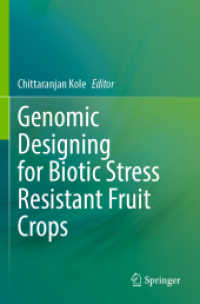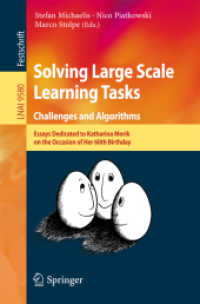Full Description
Lingua Ex Machina: AI, Multilingualism and Interculturality explores the evolving role of AI in shaping language, communication and intercultural encounters.
The term 'Lingua Ex Machina' (literally 'language from the machine') encapsulates the paradox of AI acting as both a tool for bridging linguistic and intercultural divides, and a potential amplifier of inequalities. This edited volume brings together critical perspectives on the impact of AI on language diversity, translation, education and the production and dissemination of knowledge. From questioning whether AI is more than a sophisticated 'parrot' to examining its effects on minor languages and intercultural education communication and research, the contributors highlight both the promises and drawbacks of machine-mediated communication. They also urge readers to reflect on the future of language, advocating for a reflexive approach to technology that prioritises agency, diversity, and critical engagement.
This interdisciplinary book is an essential read for students, scholars, and practitioners interested in multilingualism, intercultural communication education, and the implications of AI.
Contents
1. Problematising AI beyond a simple 'parrot'? Part 1: AI, Language Hierarchies and Global Discourse 2. AI and the language factor in intercultural communication - Or what happens to minor languages and the global flow of discourses? 3. AI as an open-ended dialogue: Language education beyond mastery and metrics 4. AI-powered multilingual assemblages in comparative and international education Part 2: Pedagogy and Critical Multilingual-intercultural Engagement with AI 5. Safe blades or sharp minds: Priorities at AI-interculturality crossroads 6. A culturally responsive guide to abstract writing: Resisting AI over-reliance through the pedagogy of Al-Ta'dib (التأديب) 7. Defining a tricycle: Critical interaction with AI through intercultural lenses








